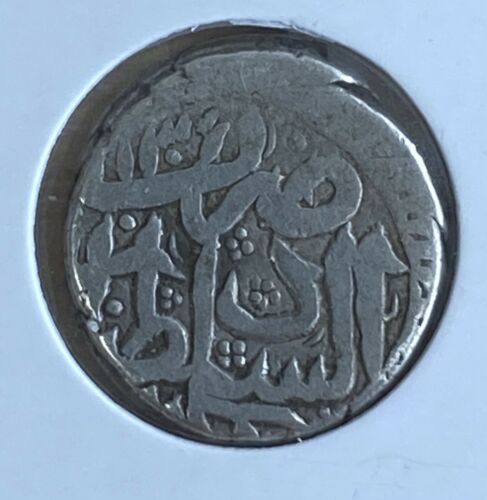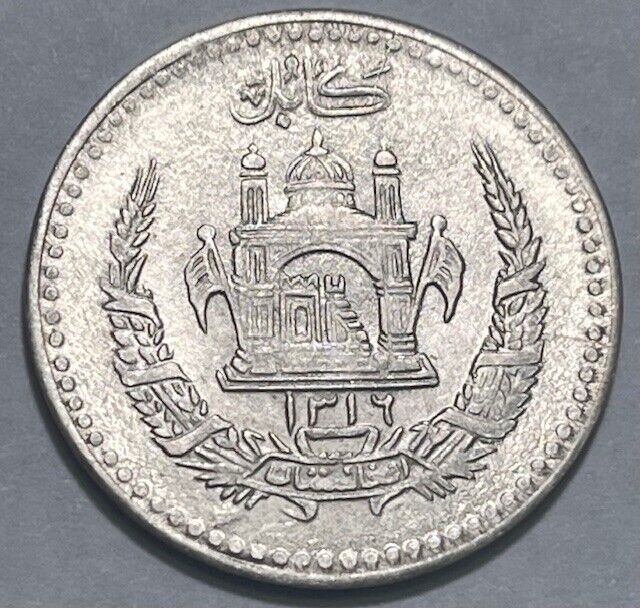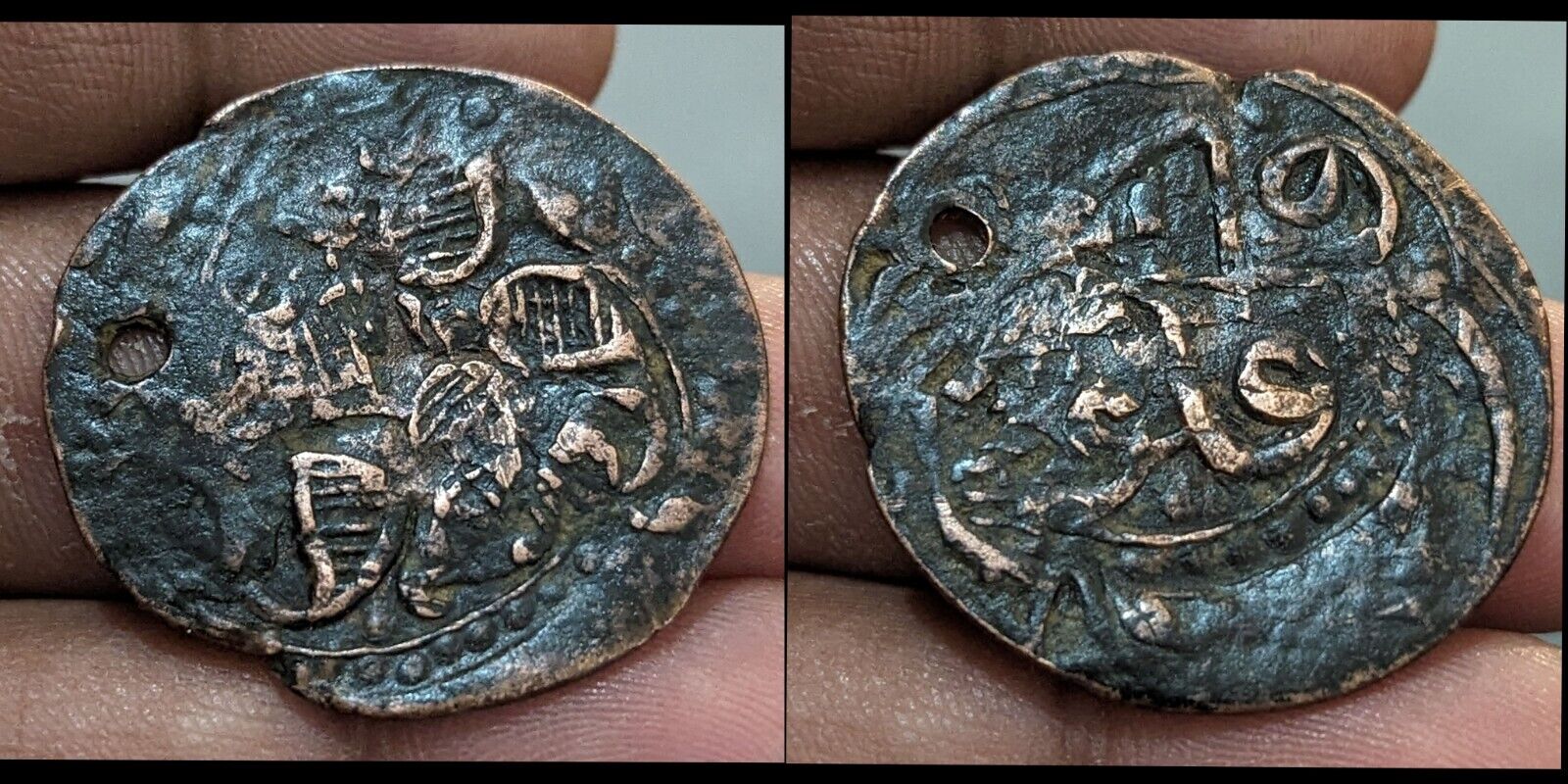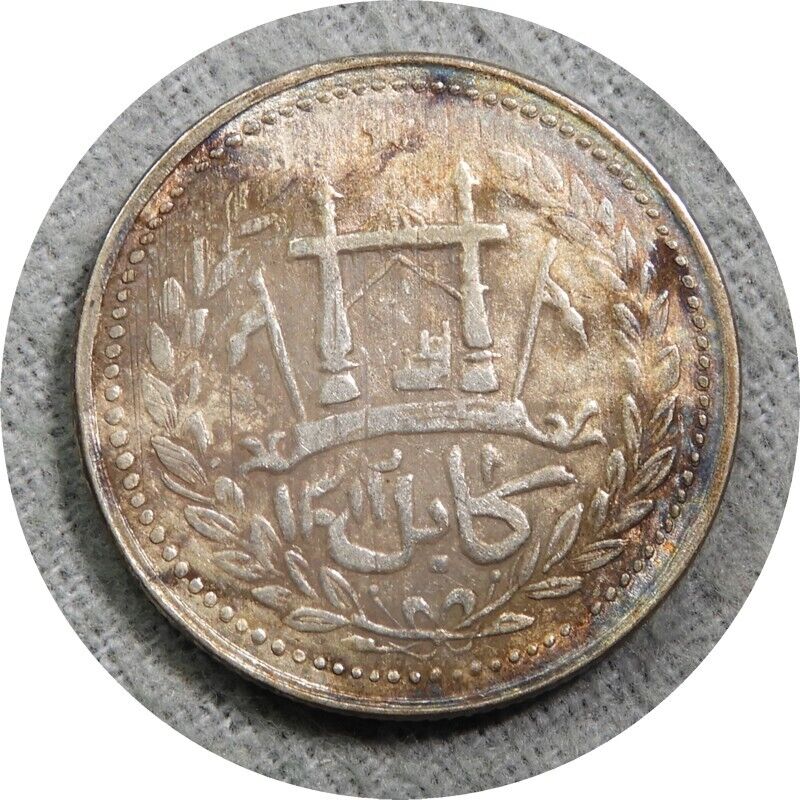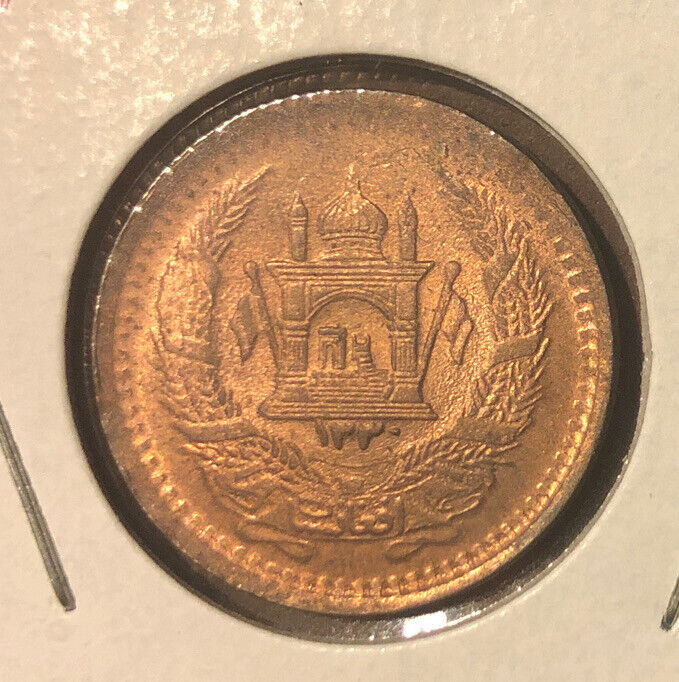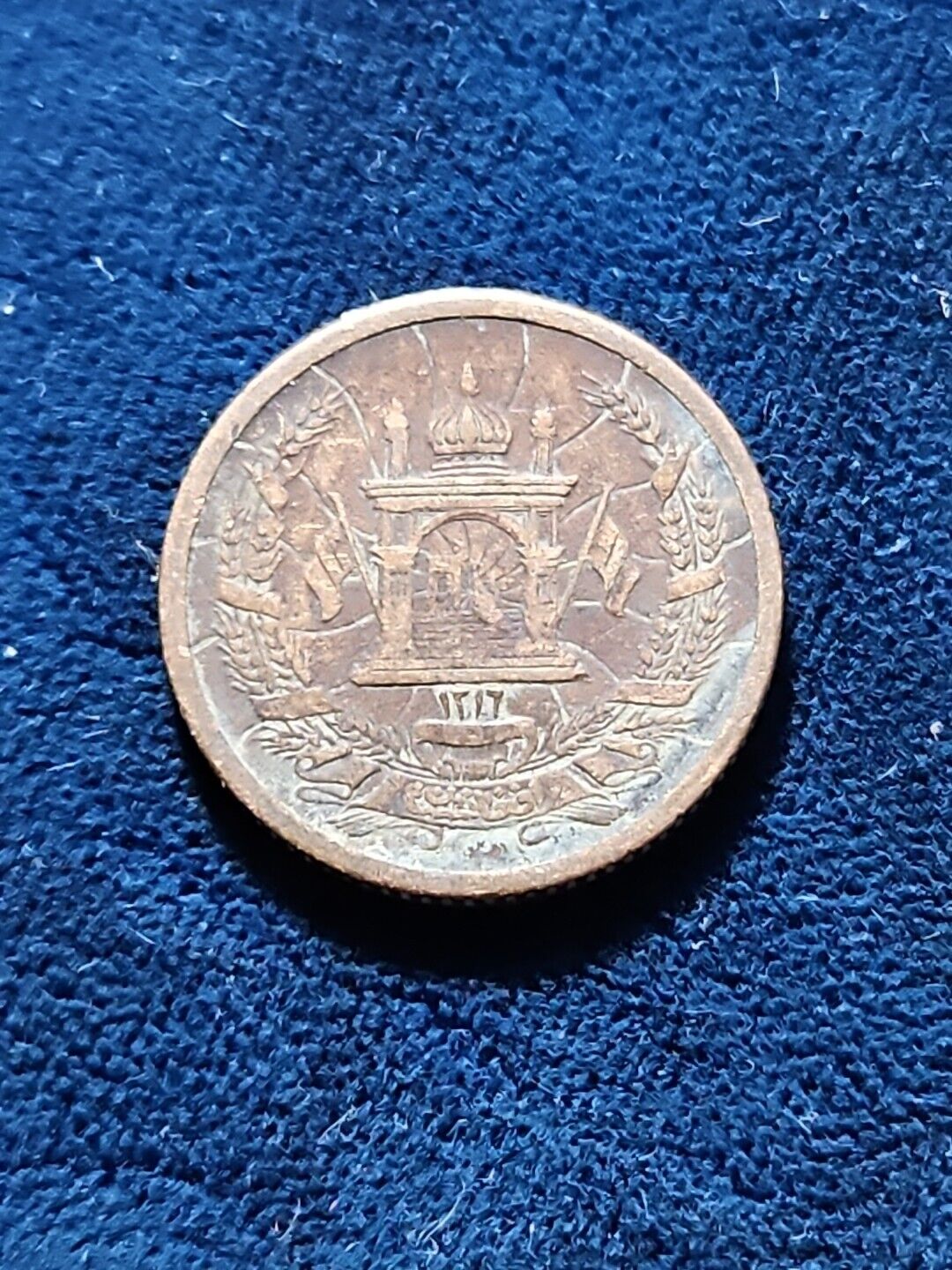-40%
AFGHANISTAN. 1 Rupee, AH 1306(1889). Kabul Mint. Abdur Rahman.
$ 21.12
- Description
- Size Guide
Description
AFGHANISTAN. 1 Rupee, AH 1306(1889). Kabul Mint. Abdur Rahman.This is an Afghan one-rupee silver coin made by the Balakzai dynasty in Kabul, minted in 1306, that is, 1889, during the reign of Dost Mohammad Khan. The Persian inscription on the obverse reads: "By the grace of the great creator, Emirdost Muhammad, again made of metal coins; The inscription on the reverse reads, Persian calligraphy: made in Kabul, the home of the sultanate, 1306. Persian miniatures are added to the calligraphy with a strong indigenous Afghan style. This one belongs to the Balakzai dynasty is relatively rare complete." We have men, we have lots of rocks, we have everything "-- Doster Mohammad Khan, son of Sardar Payanda Khan, head of the Pashtun Balakzai tribe, to John Lawrence, a civil minister in British India. He was the founder of the Balakzai dynasty. After the assassination of the Durani Mahmud in 1818, Doster took Ghazni as a fiefdom and Kabul, the richest city, in 1826. With the collapse of the Durani dynasty, he finally declared Khan in 1826, proclaimed the Balakzai dynasty, calling himself Emir. His reign was marked by the First Anglo-Afghan War. When Britain invaded Afghanistan in 1838 to compete with Russia for Central Asian interests and captured Kabul in August of that year, the British installed the descendents of the Durrani dynasty as figures-figures for the restoration. During the war of 1840, Doster was unfortunately captured and imprisoned in India. This led to a large number of indigenous Afghan chiefs defying to his son Akbar Khan, who continued to fight the British. And eventually recaptured Kabul, where the British withdrew and destroyed the entire army in a battle that shocked the British government. But a reinvigorated British army retaliated, recapturing Kabul in 1842. After burning, looting and releasing prisoners of war, the British retreated. Negotiations followed, Doster was released and returned to the throne, and British ambitions to occupy Afghanistan were thwarted. Doster, who died suddenly in 1863 on the brink of victory in the Persian war, was regarded as a national hero and outstanding ruler of Afghanistan.
